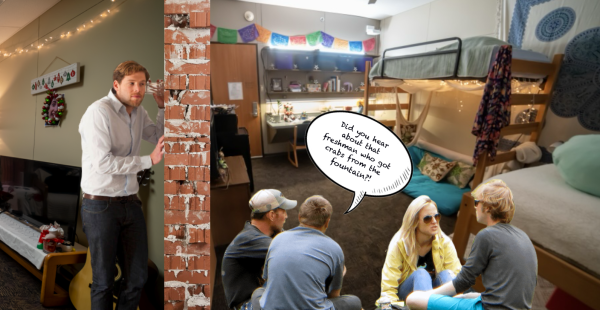How well you take care of yourself: A new metric for ‘success’
Ditch the idea that reaching our professional goals is the only thing worth pursuing
I’m driving back from a weekend trip with a close friend, and as per usual with a long drive, we have deep conversations. This time, the topic was the disillusionment that comes with burnout.
“I just feel like I’m not excited about anything anymore. Like when I do well, I don’t even celebrate my accomplishments because I have so much more to get done,” she tells me.
My heart breaks for her. Life is supposed to be something to be enjoyed, savored even. But instead, in pursuit of a fulfilling life as a successful career person (meaning she feels like she must take on every opportunity regardless of you know … time), my friend has overwhelmed herself to the point of burnout — a point most of us Trinity students have probably faced in our tenure.
Going 70 down I-35, we brainstorm together just how we can dig her out of the current hole she’s in. I bring up some of my techniques, like partaking in an enjoyable hobby such as playing guitar or watching a comfort comedy show.
“I know that I need to do that, but I just don’t have enough time for my commitments, much less something fun,” she said.
And in that moment, trying to help a friend out, I realized: if life is meant to be enjoyed, then we have to actively pursue things that we enjoy. The ‘success’ we all crave needs to be reframed because we can’t be traditionally successful in our careers and lives without taking care of ourselves. Thus, the metric for our success should be our ability to take care of ourselves.
“OK, I know how well you do in school is important to you,” I tell her. “But other than that, the only thing that you should put real effort into is self-care. … Lord knows you need it!”
The “I’ll sleep when I’m dead” and “hustle culture” mentalities are admirable because they are meant to allow people to reach their goals of money or position. Yet reaching these goals is only sustainable for surviving, not living. All of the painstaking work we put into things, whether that be in school, work or the development of any skills, should instill gratification, instead of being a cue to keep pushing to undefined limits.
All this is not to say that having goals is not admirable. I’m simply advocating for a balance — one in which we feel empowered and not like anomalies for pursuing both our career and school goals as well as our happiness and wellness.
So, when you feel yourself start to fall into the unsatisfying and unfeeling void of burnout from working your butt off to achieve a goal of success in academics or your craft, remember the key: you have to be well to actually contribute to your goals. In fact, making your own health and well-being a part of your aspirations along with your professional goals will create a positive feedback loop. As Donna from “Parks and Recreation” says, “treat yo’ self.”

I am an International Studies and Political Science major with a minor in Spanish. My passions lie in studying methods of peaceful and diplomatic interactions...

Hi guys! My name is Lily Zeng, and I am a sophomore from Memphis, TN majoring in Urban Studies with an interest in a Spanish major or minor. My favorite...










